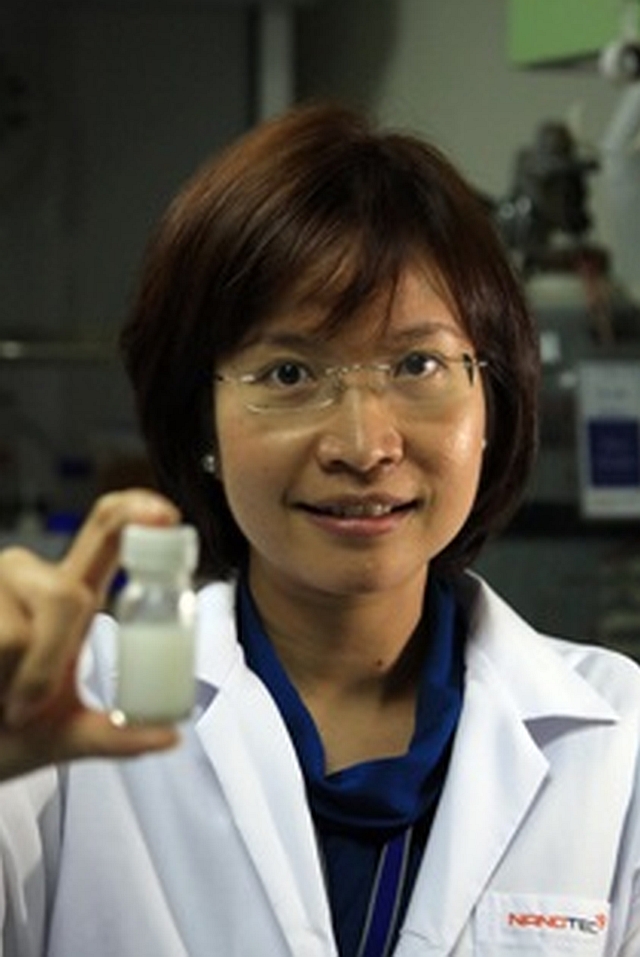
NANOTEC scientists like Dr Nuttaporn Pimpha (above pic) are using nanoparticles to deliver DOX to breast cancer cells
Singapore: Thai Researchers at the National Nanotechnology Center (NANOTEC) and King Mongkut's University of Technology Thonburi (KMUTT) developed a target drug delivery system using folate-conjugated pluronic F127/chitosan core-shell nanoparticles to deliver doxorubicin (DOX) to target cancer cells focusing on breast cancer. The research has been published in the Journal of Nanomaterials.
"DOX is one of the most commonly used chemotherapeutic agents for cancer treatment including breast cancer. However, DOX is also considered a poor soluble drug that is toxic to healthy tissues" said Dr Nuttaporn Pimpha, researcher, Hybrid Nanostructure and Nanocomposite Laboratory, NANOTEC. "By using core-shell nanoparticles from folate-conjugated pluronic F127/chitosan, we were able to develop a delivery vector that has greater targeting ability, chemical stability and lower cytotoxicity."
Cancer is becoming a significant health problem in Thailand, as is the case in several developing countries. Cervix and breast cancer is the leading cause of death in Thai women. The only commercial DOX-encapsulated liposome available is Doxil. However, Doxil has a short half-life in microcirculation and is unstable in the blood stream. Hence there is a need to find a more controlled and stable DOX carrier system.




